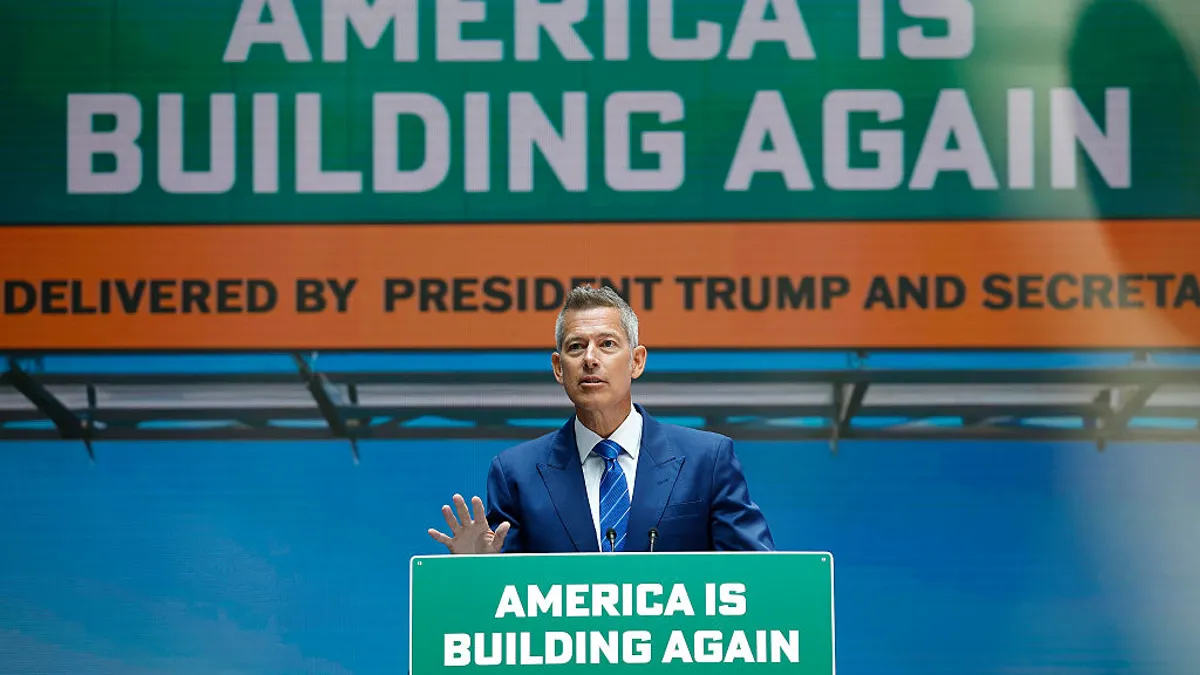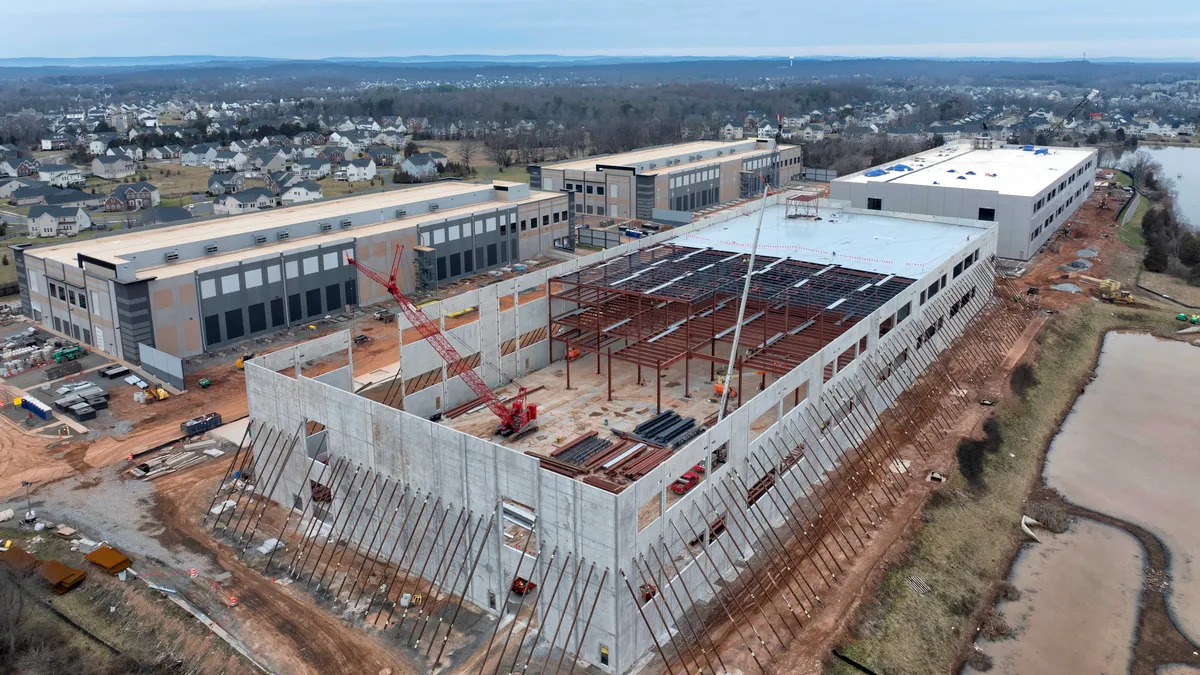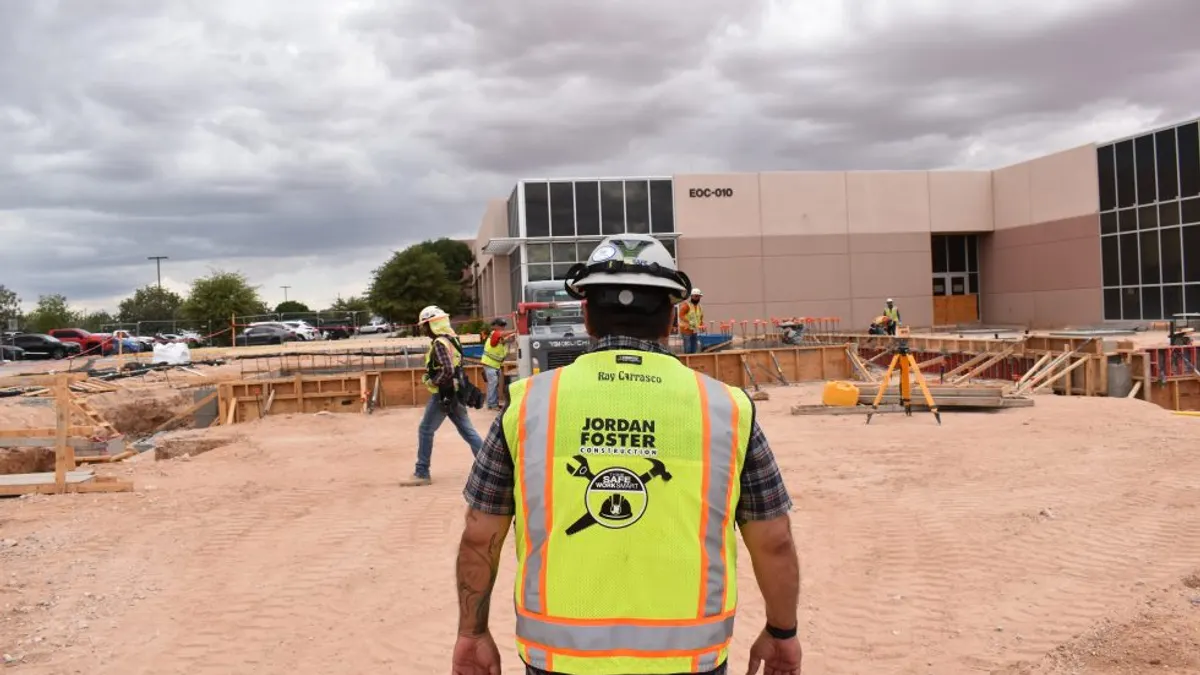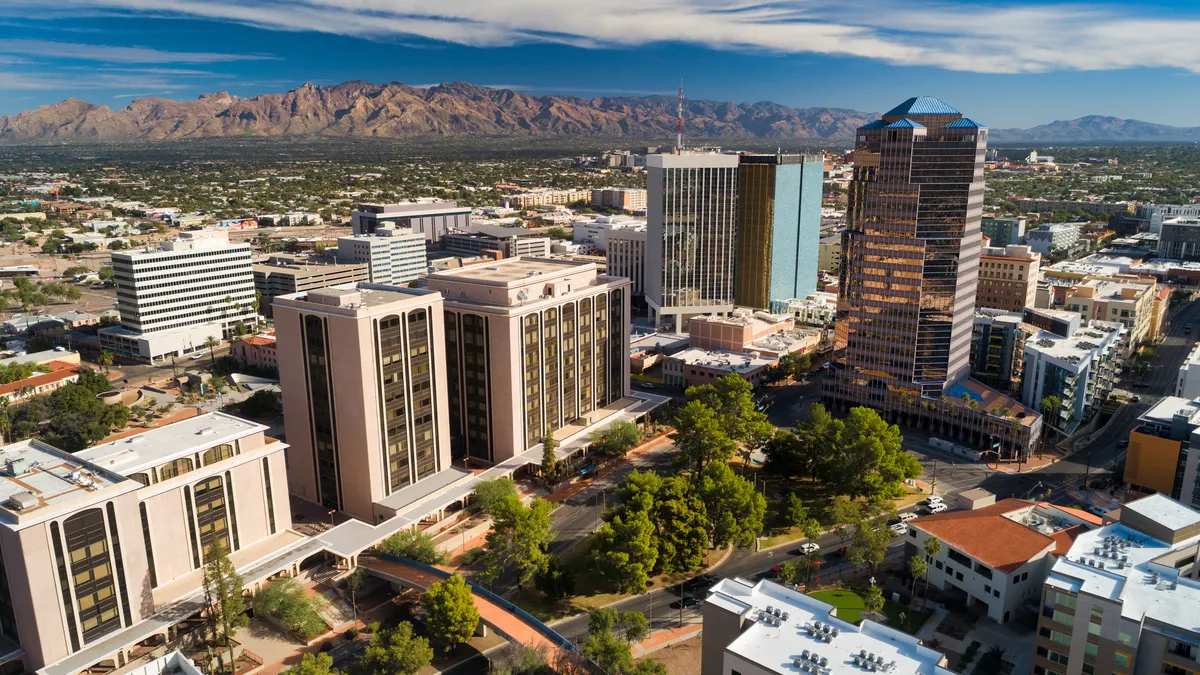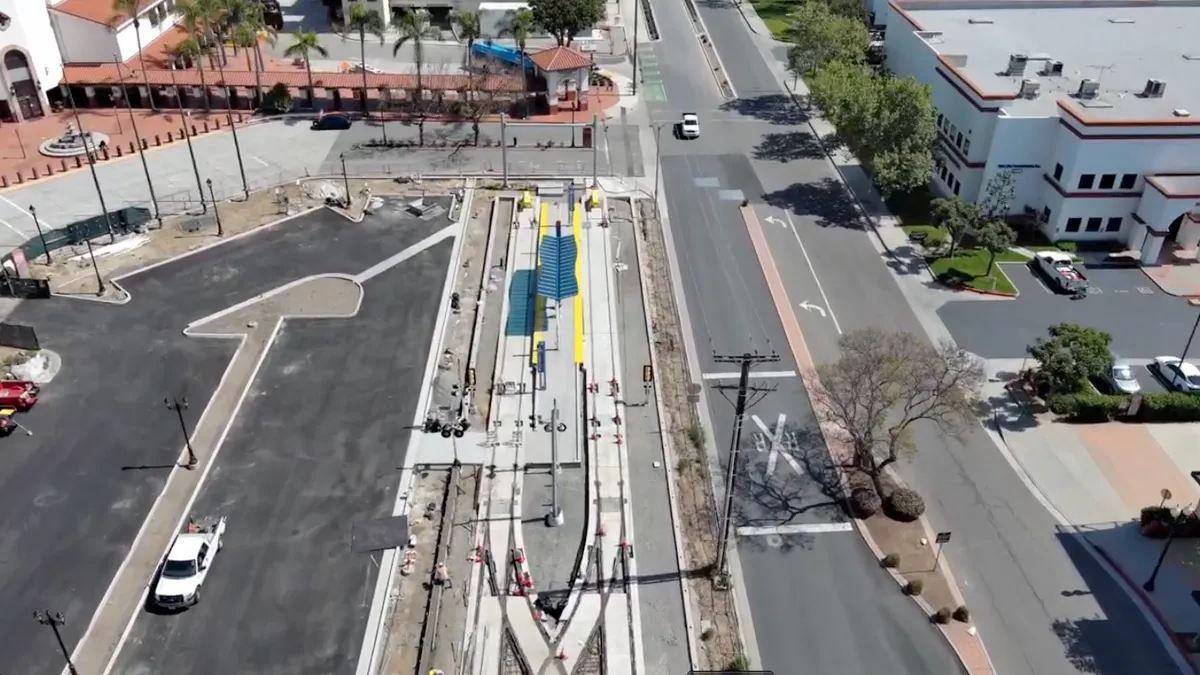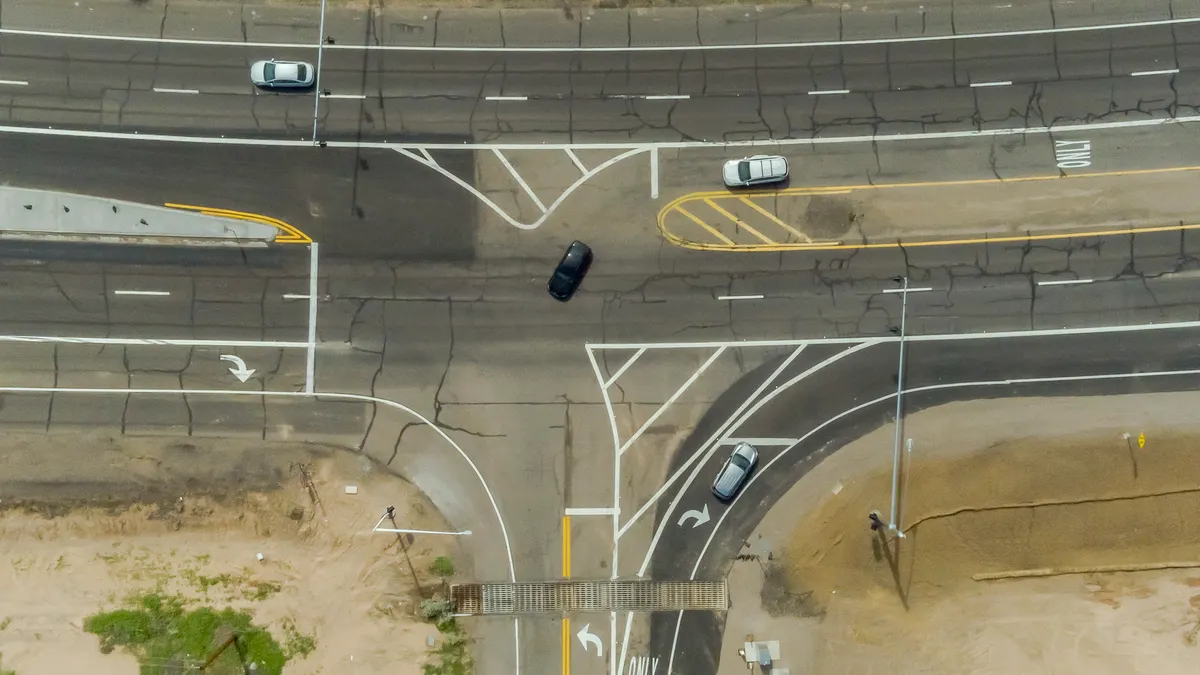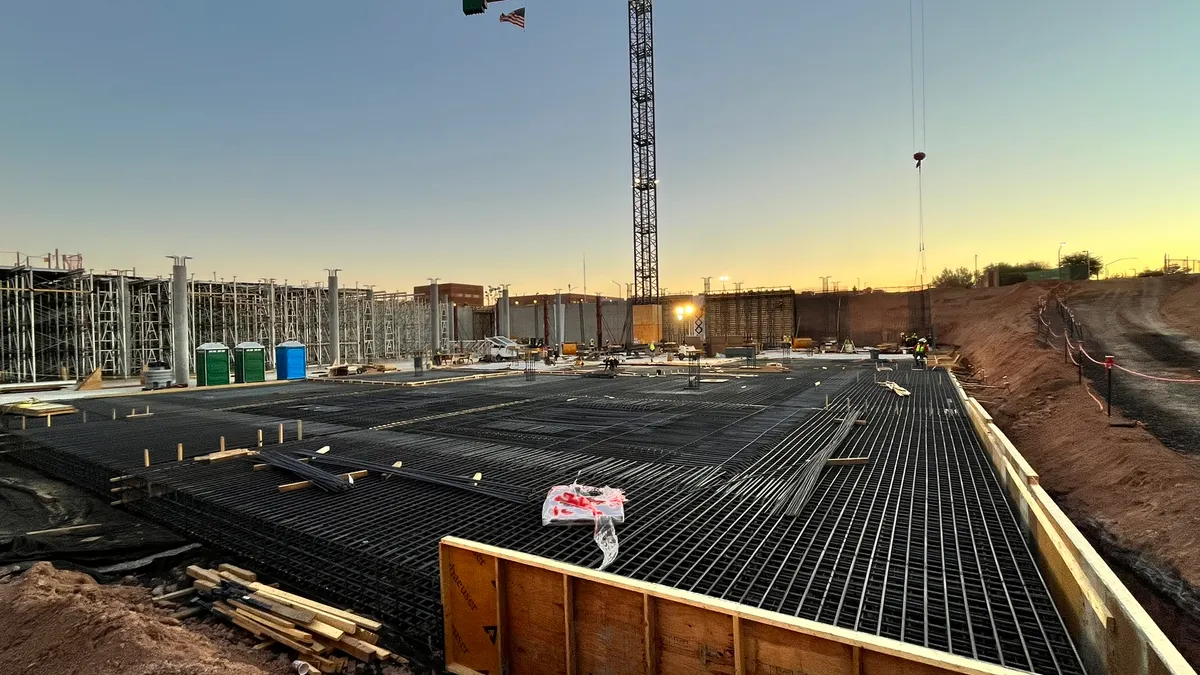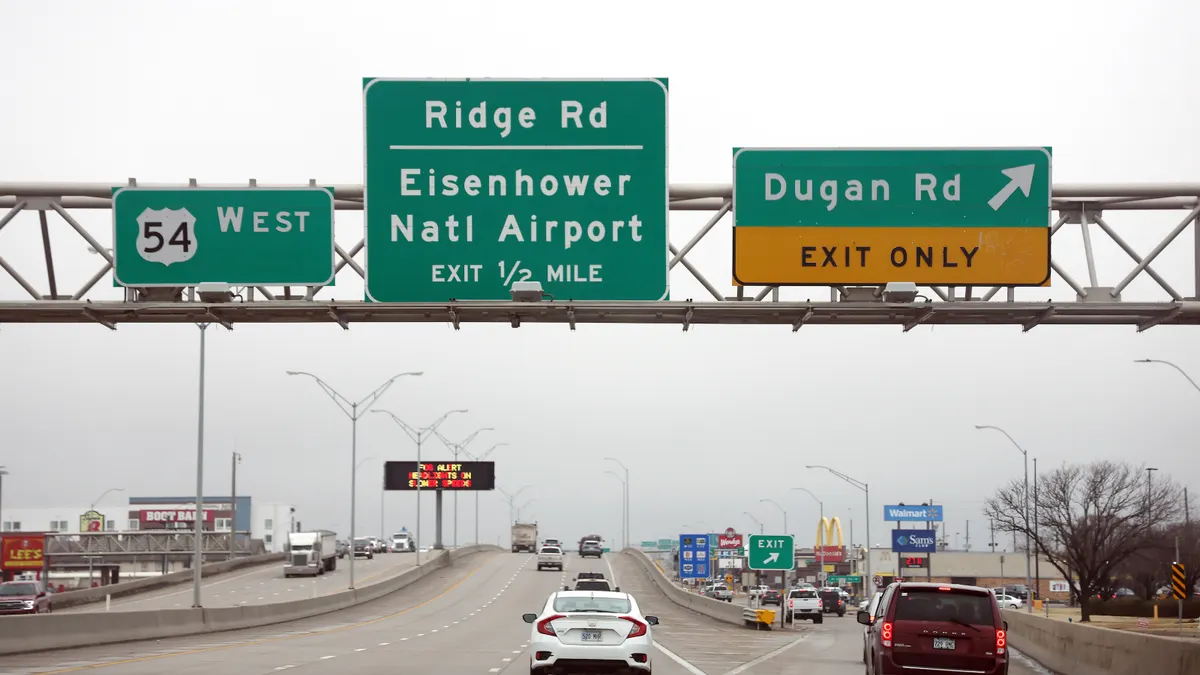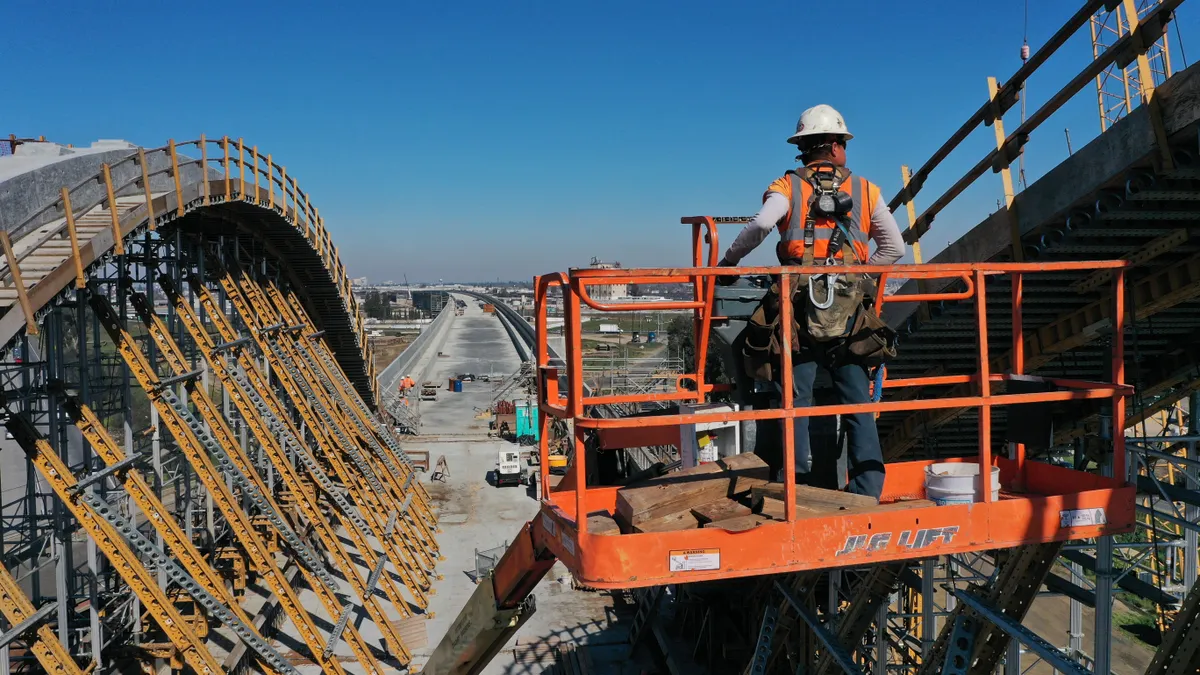The Trump administration laid out its infrastructure priorities last week — key among them permitting overhaul and speeding up construction.
“We want to streamline the rules and regulations around what you do as much as possible,” Transportation Secretary Sean Duffy said Thursday during an infrastructure conference, ahead of Congress’s Surface Transportation Reauthorization process later this fall.
At the conference, Duffy signed an agreement with the Texas DOT that allows it to take more ownership of environmental permitting requirements, in an effort to help the state build infrastructure projects faster and to serve as a model for other states.
Duffy also said he will work with Congress to adequately fund the country’s highway system and spoke on the removal of Biden-era DEI initiatives. Duffy’s “America is Building Again” agenda includes, according to the Thursday DOT release:
- Enhancing transportation safety.
- Accelerating project delivery for transportation projects, by “reforming the National Environmental Policy Act and permitting, enhancing One Federal Decision and increasing the use of technology.”
- Investment in transportation infrastructure that promotes economic growth, including more private sector investment.
- Strengthening partnerships with states and other stakeholders.
The DOT also announced $488 million in funding through the BUILD program for 30 infrastructure projects across the country, ranging from bridge replacements to flood resiliency efforts.
NEPA changes ahead
In a letter that same day, Duffy urged governors nationwide to assume NEPA responsibilities and take the lead on project delivery. Historically, federal agencies have been responsible for conducting environmental reviews and preparing documentation.
“Driving project delivery efficiencies through regulatory streamlining is one of the top priorities [of the DOT],” the letter reads. “That is why I am writing to encourage your State to take advantage of unique statutory authority and assume the Federal environmental review process under the National Environmental Policy Act.”
Duffy also cited NEPA authority when asked about the Trump administration’s priorities at the surface transportation reauthorization hearing July 16, saying that the bedrock law is “costing too much and taking too long.”
“We're actually using our unique authority for procurement that's not been used in the past. We are getting CEO engagement with us on this,” Duffy said in the hearing.
Rep. Daniel Webster (R-Fla.) testified that most rail projects take place under existing right-of-ways and asked if routine maintenance and replacement infrastructure projects could be eligible for categorical exclusion under NEPA.
“That’s a broad question, but with balance, yes, I do think they should fall under categorical exclusion,” Duffy said.
Infrastructure changes
The most recent surface transportation reauthorization was included in the broader Infrastructure Investments and Jobs Act, which expires in September 2026. Congress is hashing out replacement legislation.
At the reauthorization hearing, Duffy said the DOT wants to focus on innovation and “the efficiency with which we can deliver these projects.” When Rep. David Rouzer (R-N.C.) asked about potentially consolidating newer, smaller IIJA programs, Duffy was in agreement and said he wants to simplify the department’s grant process altogether.
“We have like 12 different programs in regard to grants, and then tech and programming and computers. Everything's different, all under DOT. We want to consolidate, and so we can have a dashboard where all of you can see where your grants are, your constituents can see, ‘where's my grant, how fast is it moving?’” Duffy said.
Webster also asked Duffy whether the creation of a federal infrastructure bank, that would levy only private investment, could supplement current federal funding tools.
“I do think there is a role for private capital to play, I would agree with that,” Duffy said. “A lot of the private capital I do see coming in is foreign private capital, and it would be nice to see more American private capital because some of these returns are pretty good.”
Rep. Chris Pappas (D-N.H.) asked about the mass layoffs at the DOT and other transportation agencies, noting that the Federal Highway Administration has seen a 26% reduction in force since May, according to Reuters. Pappas noted many DOT offices were already understaffed, and expressed concern that they don’t “have enough staff to fulfill their critical mission to our state DOTs providing front line assistance and transportation project development and delivery.”
Duffy responded that the agency “preserved all of the critical safety positions,” adding, “We're trying to do more with less, and if we're ineffective and we need more people on board to make sure we accomplish the mission, I'll bring them in.”
Other takeaways
Rep. Jesus Garcia (D-Ill.) requested support of the Disadvantaged Business Enterprise program, which increases the participation of certain small businesses in federally funded transportation projects, and asked Duffy not to defund Small Business Transportation Resource Centers, which provide DBEs with technical assistance and advice.
“If you want preferences for race and sex, I think that’s not constitutional,” Duffy responded.
Duffy also indicated conditional support for rail projects, noting that numerous rules and permits drive up the cost of building them in the U.S. versus elsewhere. The agency said Thursday that it was pulling $4 billion in unspent grants for the California High-Speed Rail and may seek to claw back previously awarded funds, according to Smart Cities Dive.
“I'm open — you give good money to invest in high-speed rail, I want to see a project that we can do it,” Duffy said. “I've been tentatively supportive of LA to Las Vegas, and want to see how they do. There were conversations about Dallas to Houston.”
Rep. Dusty Johnson (R-S.D.) said he planned to introduce a bill that would ban federal transportation dollars for states that don’t comply with Immigration and Customs Enforcement agents — something a judge in June ruled illegal, according to CBS News.
“I couldn't agree with you more, if you allow your city to be burned, or even in LA when we're allowing riders to destroy our streets, the federal taxpayer should not come back and then rebuild that when they allow it to be destroyed,” Duffy said.
In June protests against ICE raids broke out in Los Angeles, but they were largely peaceful and destruction was limited in scope and to a small area, ABC News reported.
The DOT wants feedback on surface transportation priorities, per a Request for Information titled “Advancing a Surface Transportation Proposal that Focuses on America’s Most Fundamental Infrastructure Needs,” published Monday.



